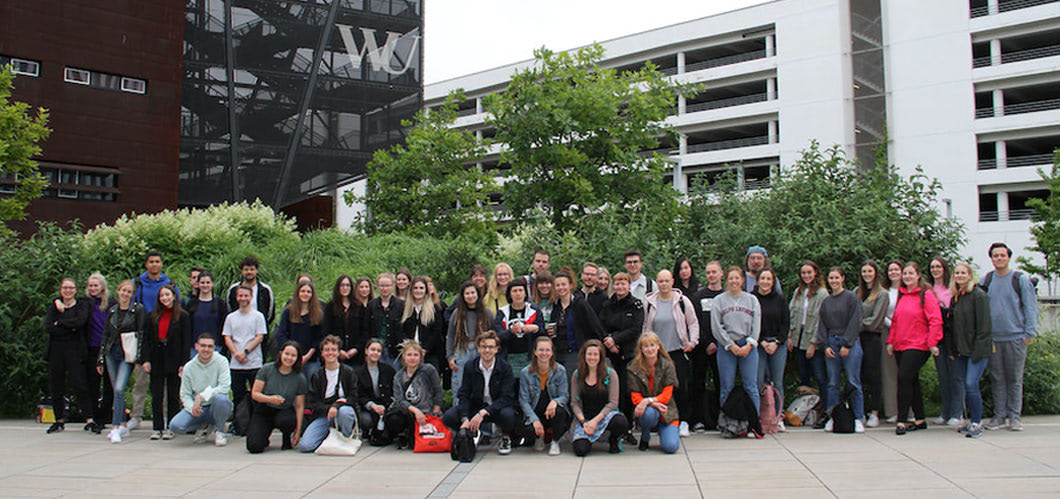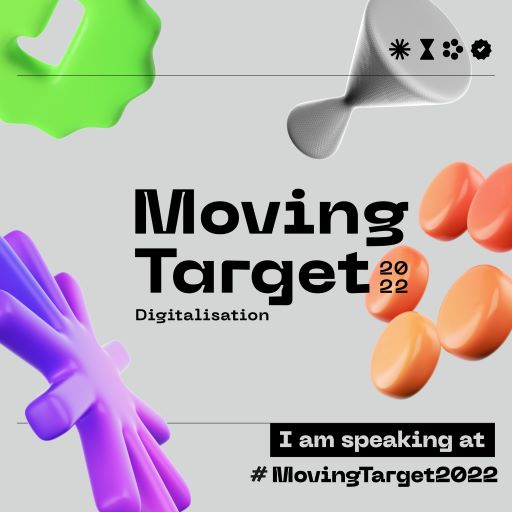Press handouts by ehs
Start of educational program with Finland and Austria
Yearbook 2021 of University of Applied Sciences for Social Work, Education and Nursing
"Strengthen diversity in a virtual way"
DAAD morning coffee "Strengthen diversity in a virtual way"
30th March 2022, presentation by Prof. Dr. Franziska Wächter and Dr. Anett Hermann
Virtual day of research at ehs
27th April 2022, expert talk by Prof. Dr. Franziska Wächter
Lecture on the project "Invisible Women in Social Sciences and Social Work"
(In)Visible Women in Social Sciences and Social Work - 1. Digital day of research 2022 at ehs
Asynchronous lecture about "(In)Visible Women: Dorothy Swaine Thomas"
Preparation of PPP: Anna Cohrs, Caroline Ludwig, Jessica Thum, Svenja Hofmann
Speakers: Jessica Thum, Caroline Ludwig
Presentations at the Vienna excursion
Wissenschaftskommunikation BW.pdf(In)Visible Women in Social Sciences and Social Work
Presentation Prof. Dr. Franziska Wächter
Introduction of the dissertation by Dr. Rosanna Sirignano
Scientific communication
Presentation Bernhard Wagner
Congress: "Moving Target Digitalisation 2022: Increasing the Impact of Internationalisation in Higher Education", 30.11.-2.12.2022
Third Research Newsletter, ehs Dresden 2022
Please see here the presentation by Prof. Dr. Franziska Wächter (in German)
Women as pioneers in social policy – experiences about international course
Hautamäki,
T., & Valkama, K. (2022). Naiset edelläkävijöinä
sosiaalipolitiikassa – kokemuksia kansainvälisestä opintojaksosta (Women
as pioneers in social policy –
experiences about international course).
In: S. Päällysaho, P. Junell, M. Salminen-Tuomaala, S. Uusimäki, E.
Varamäki, S. Saarikoski, & M. Karvonen (eds.), Opetusta, oppimista,
tutkimusta ja kehittämistä: SeAMK 30 vuotta (Teaching, learning,
studying and developing: SeAMK 30 years). Seinäjoen ammattikorkeakoulun
julkaisusarja A. Tutkimuksia 38. Seinäjoen ammattikorkeakoulu (Seinäjoki
University of Applied Sciences). p. 199–209
1st October 2021
Today we began the DAAD funded, joint lectures with Finland and Austria in the Master program of Social Work. It bears the title „(In)Visible Women in Social Sciences and Social Work“. We are very excited about what awaits us!
11th November 2021
Today the kick-off seminar (Kickoff.pdf) with all students of the three universities, cumulating in almost 80 participants, took place. It was a great pleasure to see all participants together and to get to know each other. The content matter of the project as well as the next steps were presented. The students formed twelve groups, each with their own slogan for their collaboration, e.g. „Three countries, one team“, „Make the best of our diversity“ or „Learning about Jahoda and each other.“ We are already looking forward to our next meeting in December! Until then, the internal groups of each country will develop their own inputs on different key subjects which will serve as a basis for further cooperation.
9th December 2021
The next meeting including all three universities took place on December the 9th. This time more than 80 participants were in the Zoom meeting. On the agenda was the exchange of theoretical knowledge in the respective specialized perspectives: Austria on diversity, Finland on social policies and Germany on research. Altogether we were able to listen to fourteen presentations (2nd-joint-seminar.pdf). With this new knowledge we started working in small, mixed groups. Every group created a schedule and assigned research tasks to work on the biography of one selected female researcher each: Beatrice Webb, Dorothy Swaine Thomas, Margaret Mead, Marie Jahoda, Miina Sillanpää and Hilma Granqvist
6th January 2022
Finally, the culmination of our weeks of intense collaboration was reached. The twelve transnational groups presented their final results of their research (3rd-joint-seminar.pdf) about the biographies of the six women .
Half of the groups focused on the professional careers of the female-protagonists. Guiding the research of the biographies were questions about their main subject, their target group and their collaborators were action guiding. Furthermore, it was investigated which challenges and milestones the female scientists met on their path, whether their work had an international impact and which profession they identified themselves with. Of course, questions concerning the characters itself were of interest too, e.g. from which social-cultural background they came and by whom they were supported. Finally, it also had to be explored which results of their work were of particular interest and which discourses they influenced.
The other half focused on a more detailed elaboration and presentation of a salient (research) work of the women. The content presented dealt with the importance of the chosen works in the greater scheme of their careers and also in relation to their professional field and whether they established their own research methods along their path. Further, it was investigated where their influence can still be observed today and which fields of work they had a lasting impact on.
Together, questions were discussed after the presentation, such as: Which impact did the women have that we can still observe today? What can we learn from the scientists, especially in relation to our own professional practice? Which central topics characterize the works of the women?
The outcome of that discussion was, that above all the courage and assertiveness shown by the female scientists was very inspiring for us. Their life’s work proves, that it’s worth it to stand up for your own cause and to not give up despite of adverse circumstances.
The result of this day was very impressive. It was fascinating to see which achievements women in social sciences were responsible for, that we had never heard of to a large extend. Everyone did a very good job in preparing their presentations.
What's next?
We are already looking forward to the 2022 summer semester with great anticipation, because in this we will intensify our work on the biographies and transfer our bundled knowledge to educational non-fiction comics. We are particularly excited about the Vienna excursion in May. During this we will get to know the Austrian students with whom we will work over the summer semester and get together with the comic artists to put our ideas on paper.
Please click on a tab to find out more!

At the end of May it was finally time for our study excursion to Vienna. The aim of the excursion was to compare and discuss our respective research results together with the WU students and to bring them together in common concepts for processing in science comics.
Monday 05/23/22
Get-to-know-you game
joint elaboration
Our weekly program at the Vienna University of Economics and Business (WU) https://www.wu.ac.at/ began on Monday morning at 9 a.m. We were welcomed by the lecturer at the WU, Anett Hermann, and her students. This was followed by two thematic inputs by Bernhard Wagner on science communication and Franziska Wächter on science comics. We were then assigned to our group colleagues from the Vienna students, with whom we worked on the biographies of the four social researchers. After a short break we got together for a group game. In this, the respective working groups had to build a tower of wooden blocks using several ropes. A good opportunity to test our ability to work in a team and to ease the tension of being unfamiliar. Then we went into the lunch break, during which some ate together in the very spacious canteen. This was followed by a group work phase for the remainder of the day. In this, we exchanged views on our respective biographies, compared the levels of knowledge and defined the content of the research and diversity topics for the comics. Finally, the first work results were briefly presented in a large group before we could go home for the day.
Tuesday 05/24/22
Working in groups
Online Session with Rosanna Sirignano
Tuesday was a very long day ahead of us. It started at 8:30 a.m. at WU with an input from Granqvist expert Rosanna Maryam Sirignano, who was connected via Zoom. She reported on her research results as part of her doctoral thesis, in which she had made the life and work of Granqvist her subject. This gave us a very profound but also personal insight. Afterwards we could ask questions. Finally, she thanked us for our interest and was visibly pleased about the opportunity to share her knowledge with us. After the lunch break that followed, the two graphic designers, Ruben Titze and Max Baitinger, introduced themselves to everyone present and then accompanied us to the project rooms intended for our group work. Since the two artists were each assigned to two biographical groups, they alternated between the two when working together. In the groups we worked on focusing the content of the stories to be told. There was a lively brainstorming process for using the focal points in the plot and its creative implementation. At the end of this intensive afternoon, we briefly presented our interim status of the cooperation. The day at WU came to an end around 7 p.m.
Wednesday, 05/25/22
Presentation of the results
Campus Vienna
Wednesday was the last day of our collaboration with WU students. On this day we had time to make final corrections to our comic concepts in the working groups and to prepare the presentations of our results. This was followed by the presentation of our concepts, in which we presented our focal points, plots and ideas for graphic implementation to the plenum. It was very interesting to see the different results and approaches of the groups. After the last group had presented, Anett Hermann and Franziska Wächter said a few final words of thanks. After the official conclusion of the cooperation, all those interested could take part in an architectural tour of the campus in the afternoon, in which the extraordinary campus buildings were presented and explained by an architect.
Thursday, 05/26/22
In the footsteps of Marie-Jahoda
Students and lecturers from Dresden in Marienthal
Thursday, the last day of the program, only started in the afternoon when we met at 2:30 p.m. at the main train station to take the train to Gramatneusiedl, where the former workers' hostel Marienthal was located, which became well known through the study of the same name. Waltraud Milalkovits, the deputy chairman of the cultural association Museum Marienthal-Gramatneusiedl
https://www.museum-marienthal.
Of course, the week didn't just consist of group work and seminar content for us. We used our free time to explore Vienna - from the old town to the Danube Island, to test the culinary offerings, to go out and spend sociable evenings with our fellow students.


